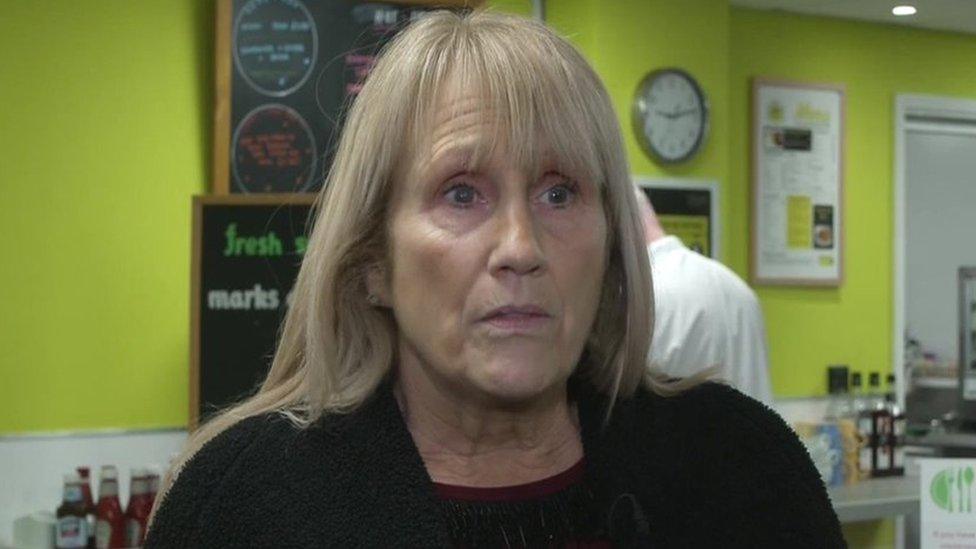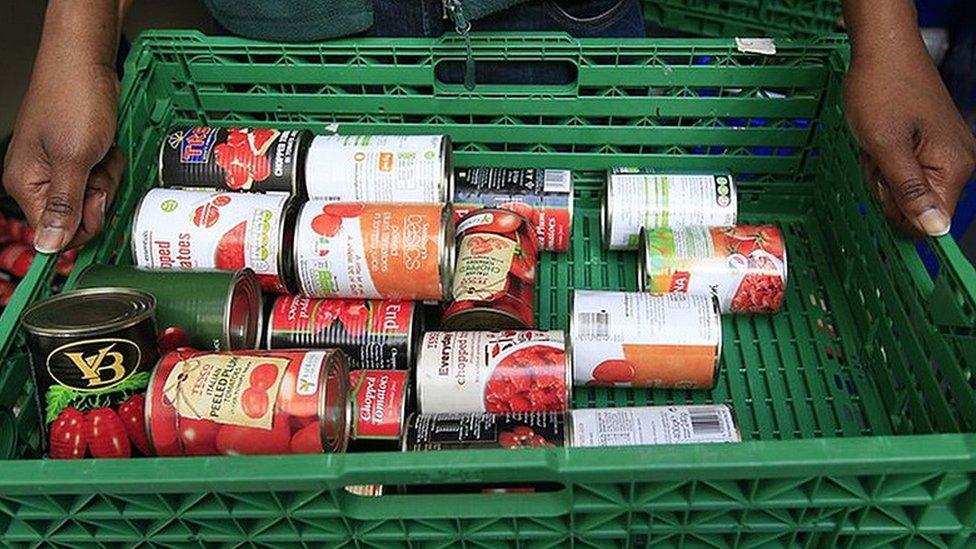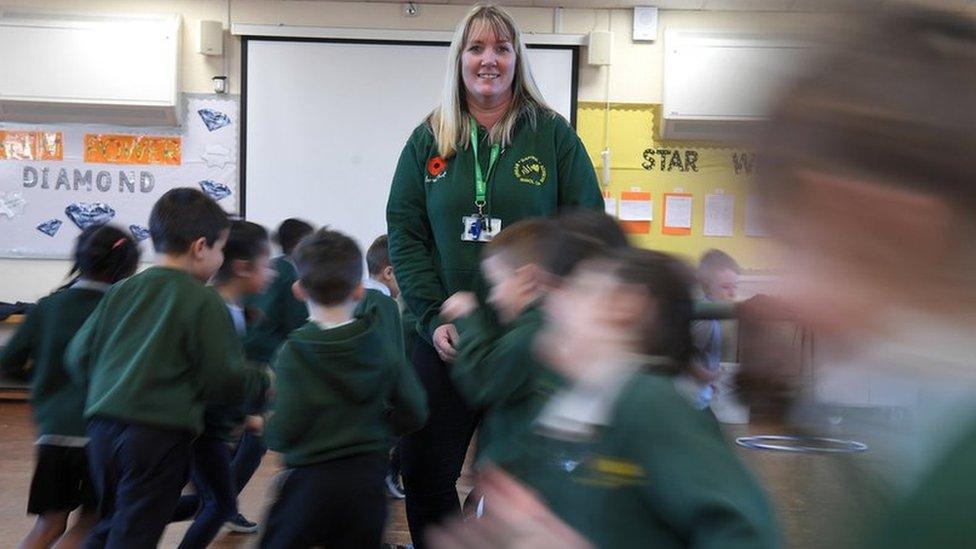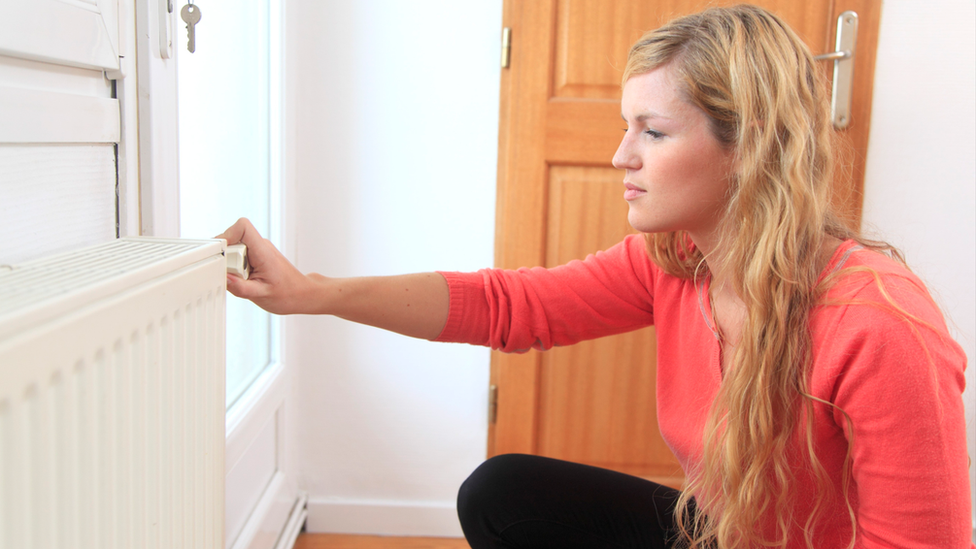Preston food poverty charity says energy bills hike a nightmare
- Published

Caroline Whalley-Hunter says she does not know how people are going to afford further energy bills rises
A charity which helps tackle food poverty said a rise in energy bills was a "nightmare" as it already struggles with "astronomical demand".
Recycling Lives based in Preston said it provides up to three million meals a year in Lancashire and Cumbria.
Energy bills for its Fareshare food redistribution operation have already soared by £3,000 a month, it said.
It comes as a typical annual household bill is set to rise by £900 in April as government help eases.
Energy regulator Ofgem has cut the amount households can be charged by suppliers to £3,280 a year in April but because the government's guarantee will become less generous and a £400 winter discount on all bills ends.
The typical annual household bill is set to rise from £2,100 to £3,000.
Recycling Lives, part of the Fareshare network, said people were already struggling with the cost of living and in November it asked for donations from the public for the first time as demand doubled.
Caroline Whalley-Hunter, one of the trustees, said it cannot keep up with the pace of the demand for its service, adding it had gone up "astronomically".
She fears a further rise in energy bills will only increase people who want its support.
Speaking to BBC Breakfast, she said: "Where are people going to get that money from? They're already stretched as it is.
"It used to be just people on benefits who were going to foodbanks and now it is even working people needing to supplement their shopping."

Demand from people struggling with bills was already astronomical, says the charity
Alasdair Jackson, the charity's chief executive, said a further hike was a "nightmare" not just for the community but also for the not for profit operation which has already seen its energy bills soar £3,000 a month since October compared to the previous year.
"We're a small charity... so an extra massive hit on a fuel bill is a big thing for us.
"That's an extra £30,000 [a year] we have to find as a charity just to keep that service going. That will hit our bottom line again so we have got to find it."
Mr Jackson called on the government to extend its help for both individuals and businesses with energy bills.
'Crunch point'
Rosi Avis, of Citizen Advice Manchester, said: "We saw more people in January who are coming to us with an issue with their energy bills than we have ever seen before.
She said many households would "hit a real crunch point" where prices go up and "support falls away".
She added: "It is really important that the government keeps the energy price guarantee at £2,500 in order to essentially protect people."
A Department for Energy Security and Net Zero spokeswoman said support will continue to help households with their energy bills.
"We know this is a difficult time for families, which is why the government has covered around half of the typical household's energy bill this winter, and by the end of June the Energy Price Guarantee will have saved a typical household in Great Britain around £1,000 since it began in October.
"The cost of energy has already been falling and we expect this to drop further over the coming months, which we fully expect suppliers to pass onto their customers."

Why not follow BBC North West on Facebook, external, Twitter, external and Instagram, external? You can also send story ideas to northwest.newsonline@bbc.co.uk, external
Related topics
- Published3 April 2024

- Published25 January 2023

- Published27 February 2023

